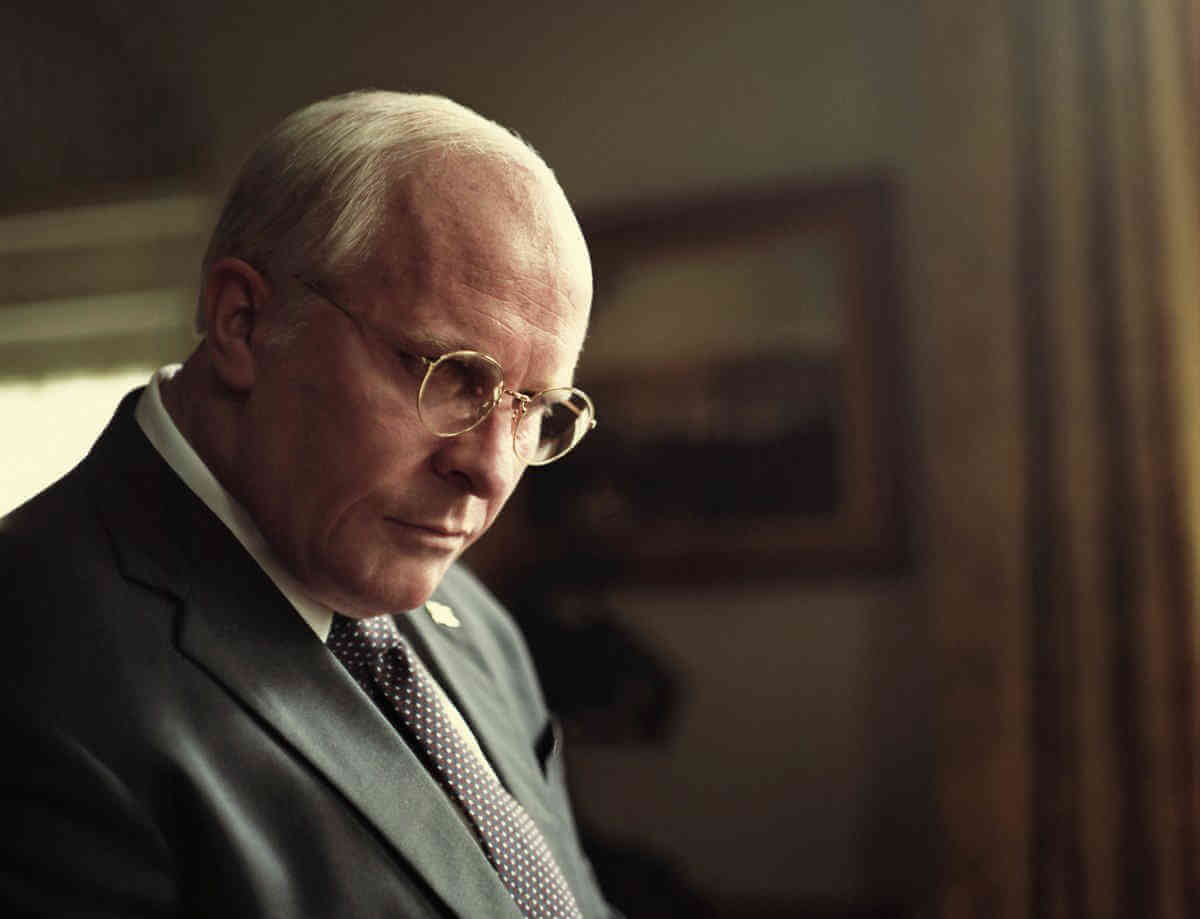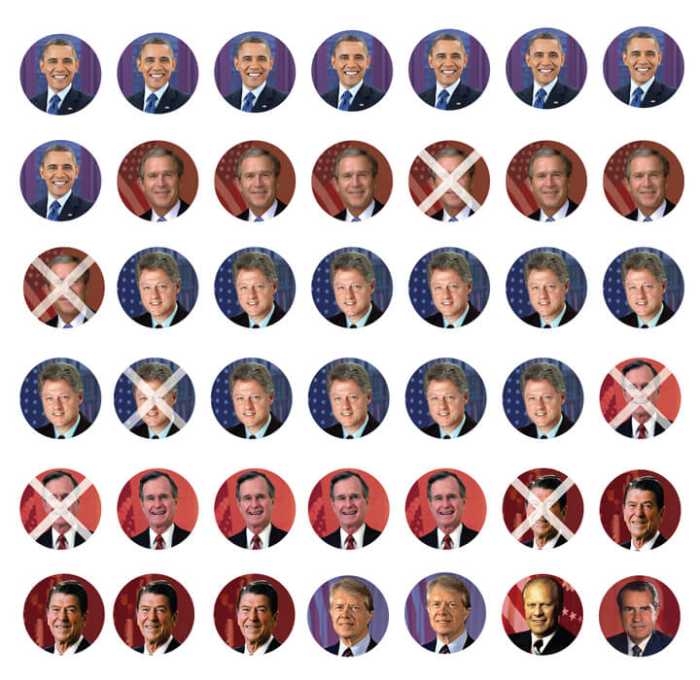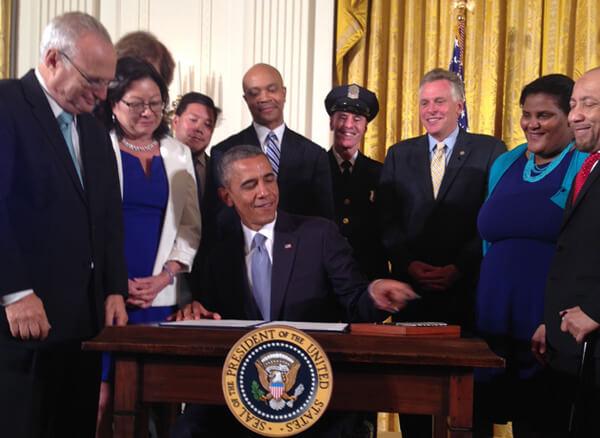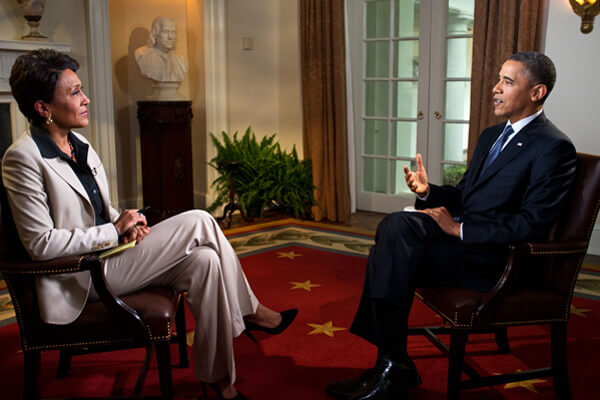What audience was “Vice,” a satirical but unfunny rundown of Dick Cheney’s (Christian Bale) life, made for? Its story is old news to anyone who was politically aware during the Bush/ Cheney administration. The uncritical, downright hagiographic media reception that George H. W. Bush received upon his recent death shows the dangers of historical amnesia and assuming that the rot in American politics began with Trump’s election. Director Adam McKay’s recent interview remarks that Bush was much worse than Trump and Bill Clinton was also a terrible president are consistent with this film’s montage featuring Alex Jones pointing a gun at the camera, drug overdose victims, and forest fires, among other numerous allusions to present-day ills, and ending with a shot of “Dick and Lynne” carved into a tree. “Vice” is an implicit reproach to people with short memories who want to recruit the Bushes into #theresistance.
But how progressive can a film that treats its spectators as though their attention spans are so short they can’t sit still for a shot lasting more than a few seconds be? McKay’s “The Big Short” succeeded at being an entertaining take on Wall Street corruption. While its style wasn’t all that different from that of “Vice,” it was far more expressive. “Vice” plays like a “Saturday Night Live” sketch about politicians’ crassness extended to 132 minutes, except that it’s pissed-off in a way that’s willing to risk making it look uncool. Cheney’s final scene directly implicates the audience for enabling his rise to power. All of this would hit home much harder if the direction and editing didn’t feel like a college student’s Oliver Stone impression.
“Vice” begins with the young Cheney getting into a car accident while drunk, then leaping to him watching TV on 9/11 in the White House. It avoids telling a completely linear story as it shows Cheney’s rise from getting kicked out of college to his first political job with Donald Rumsfeld (Steve Carell) in the Nixon administration. After suffering his first heart attack on the campaign trail for a Wyoming US House seat and a temporary loss of power under Jimmy Carter’s ascendancy, he became vice president under George W. Bush (Sam Rockwell) in 2001.
The pseudo-Brechtian pretensions of “Vice” are decorative. Just after someone says “we can’t include a Shakespearean monologue,” the film cuts to Lynne Cheney (Amy Adams) in bed with her husband, delivering one. It imagines an alternate world where Cheney was content to leave public office and work for Halliburton, complete with fake ending and closing credits. Most of its “adventurous” touches are extremely shallow and gimmicky, like illustrating a conversation with grainy video of a big cat taking down prey. It has a narrator whose place in Cheney’s life seems odd given that he’s a working-class soldier. His role is only fully explained in the film’s final 20 minutes, but the cynicism that it tries to blame on the Cheneys spreads out into “Vice” itself.
Bale gained 45 pounds to portray the older Cheney and wore extensive prosthetic makeup throughout. The effect is quite convincing, as are the makeup jobs on the whole cast. “Vice” is a film that deliberately glides along the surface. It’s obviously denying the people it portrays the respect of a three-dimensional depiction as a political gesture, instead mocking them relentlessly. But while Bale gives the film’s best performance, the whole cast has been directed toward impersonation: Carell seems to have put most of his effort into imitating Rumsfeld’s voice. “Vice” is so uninterested in engaging with people that it has to make even the minor figures in its story instantly recognizable as political celebrities.
“Vice” is conscientious enough that its least cartoonish scene involves Mary Cheney (Alison Pill) coming out to her parents and the film returns twice to Bush and her family’s reactions to her lesbianism as a marker of Republican hypocrisy. It also takes America’s torture and murder of Iraqis more seriously than the majority of our politicians and media did for the first few years of the Bush administration’s Iraq War. But it winds up blaming America’s problems mostly on the personal flaws of a handful of leaders who can dupe an apathetic public into giving them power.
At its smartest, “Vice” conveys a sense of how Cheney used and was used by systems well beyond him. The reliance on cheap shots would be more justifiable if the film had enough artistry to make its rage hit home. Was it supposed to be a comedy? I honestly don’t know. It’s a history lesson full of sound and fury, signifying something but nowhere near as much as it would like to.
VICE | Directed by Adam McKay | Annapurna Pictures | Opens citywide Dec. 25


































